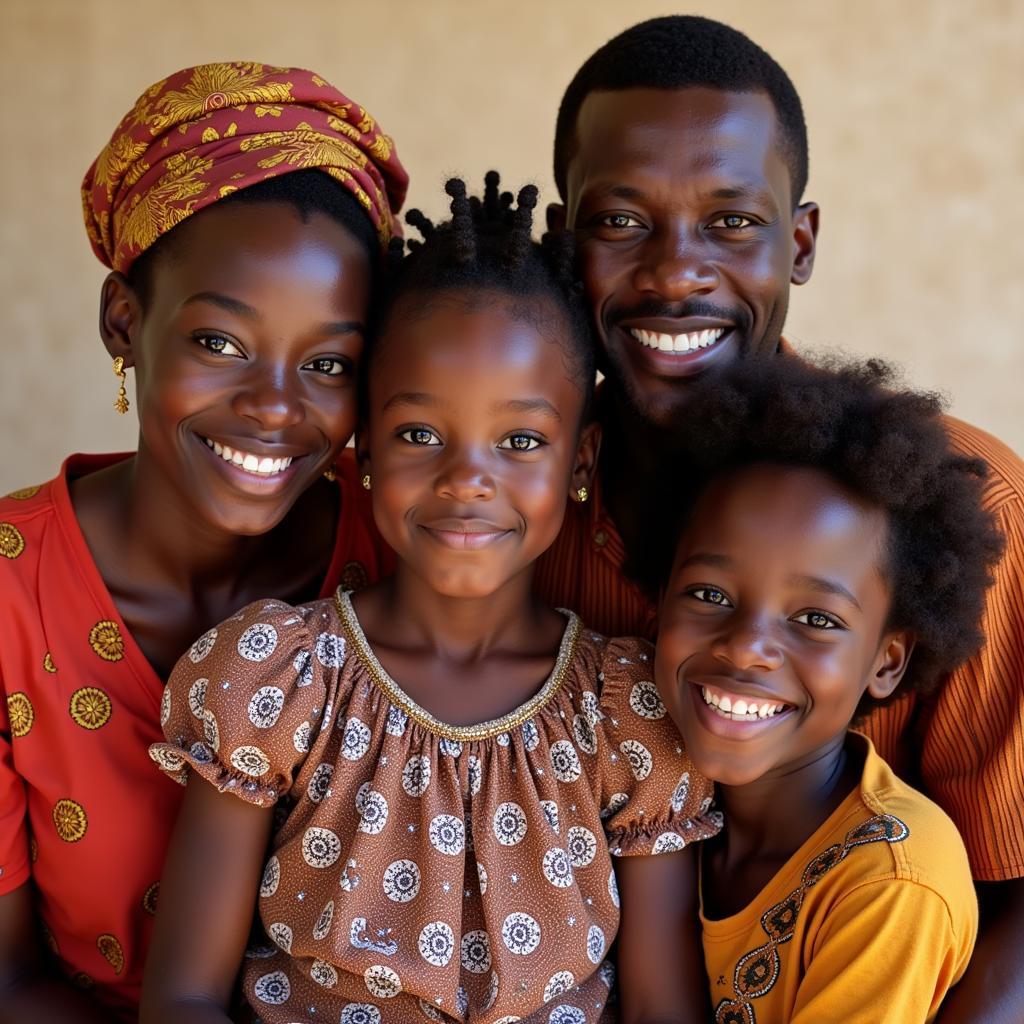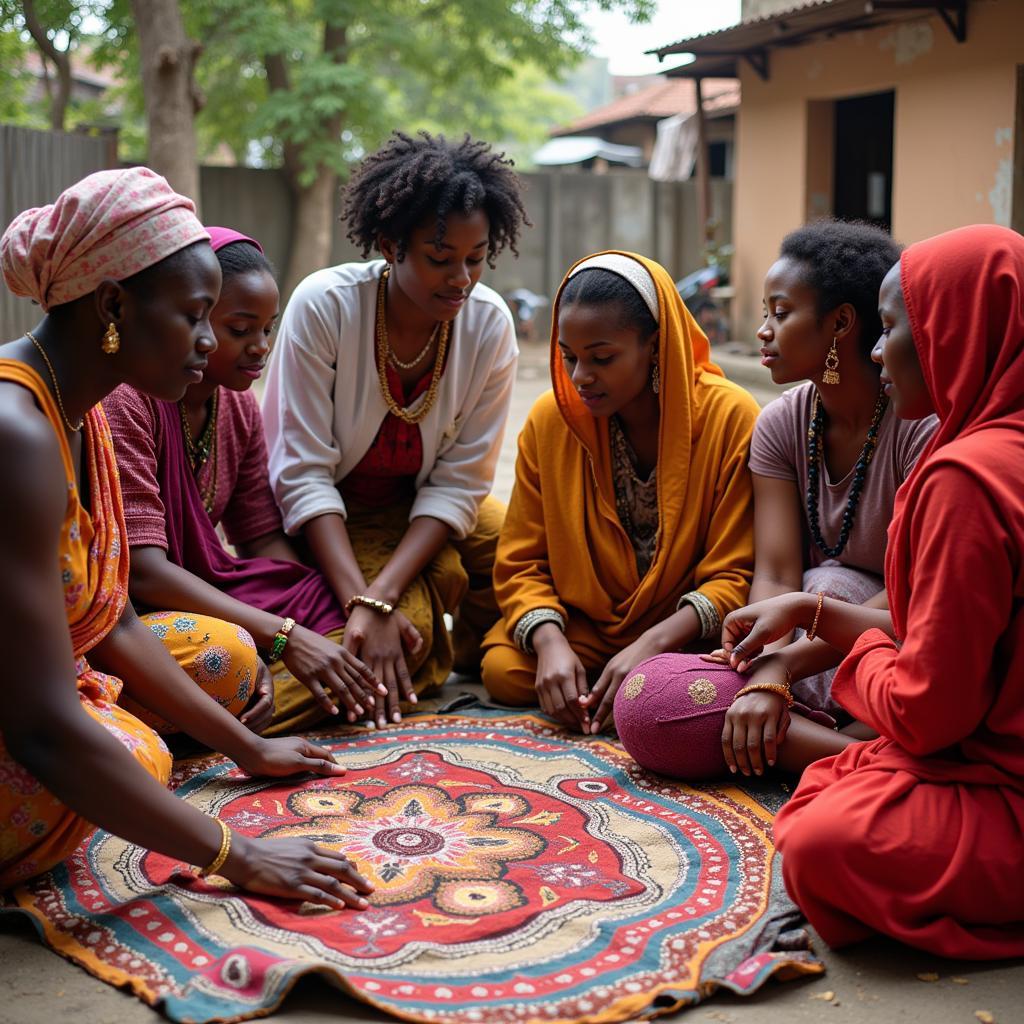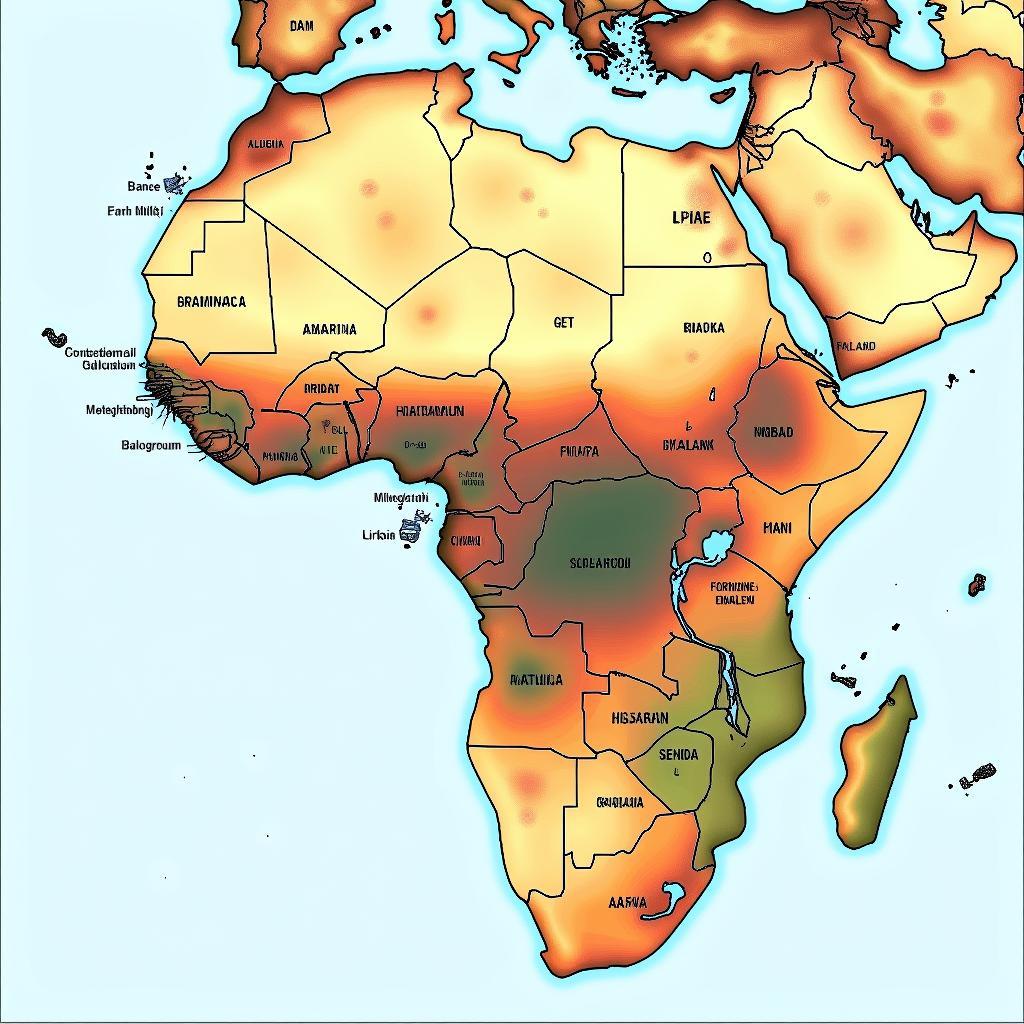Uncovering the Significance of African Day Names
The practice of naming children after the day of the week they are born is deeply rooted in many African cultures. These “African Day Names” are more than just identifiers; they are powerful symbols imbued with rich meaning, cultural significance, and spiritual beliefs. They reflect a profound connection to ancestry, community, and the natural world.
The Cultural Significance of Day Names
In many African societies, the day of the week carries specific energy and symbolism. This belief system often extends to the individual born on that day, shaping their perceived personality traits, destiny, and even their role in the community. For example, a child born on a day associated with strength might be expected to exhibit leadership qualities.
 A vibrant celebration of an African child naming ceremony
A vibrant celebration of an African child naming ceremony
Common Themes in African Day Names
Across the diverse cultures of Africa, certain themes consistently emerge in day names:
- Ancestral Connection: Day names often honor ancestors or deities associated with specific days.
- Natural Elements: Many names reflect a deep connection to nature, drawing inspiration from celestial bodies, animals, and natural phenomena.
- Character Traits: Day names frequently allude to desired personality traits such as wisdom, courage, or prosperity.
- Circumstances of Birth: Some names reflect the specific circumstances surrounding a child’s birth, such as the weather or time of day.
Exploring Day Names Across Different Regions
The specific day names and their meanings vary significantly across different African cultures and languages. Let’s delve into a few examples:
West Africa
- Akan (Ghana): Kwasi (Sunday), Adwoa (Monday), Kwabena (Tuesday), and so on. These names often reflect the order of birth within a family.
- Yoruba (Nigeria): Ọjó́ọ̀rúnbí (Sunday), Ọjọ́ájí (Monday), Ọjọ́ìṣẹ́gun (Tuesday), and so on. Yoruba day names are rich in symbolism, often referencing deities or significant events.
 A West African family captured in a heartwarming portrait
A West African family captured in a heartwarming portrait
East Africa
- Swahili (East African Coast): Juma (Friday) is a common name signifying the importance of the Islamic holy day.
Southern Africa
- Zulu (South Africa): The Zulu people have unique day names like Nkosazana (Sunday), meaning “princess,” or Sibonelo (Saturday), meaning “example.”
The Enduring Legacy of African Day Names
“The use of day names is a beautiful testament to the rich oral traditions and cultural heritage of Africa,” says Dr. Abena Agyemang, a professor of African Studies. “These names are more than just labels; they are stories, blessings, and connections to the past.”
While modern naming practices are evolving, African day names continue to hold deep cultural significance. They serve as a reminder of the interconnectedness of life, the importance of heritage, and the enduring power of tradition.
Frequently Asked Questions about African Day Names
- Q: Are African day names still common today?
A: Yes, while modern naming practices are increasingly common, day names remain an integral part of many African cultures. - Q: Do day names influence a person’s life?
A: While not deterministic, day names are often seen as influential in shaping personality and destiny in some cultures. - Q: Are there variations in day names within a single culture?
A: Yes, variations may exist based on regional dialects or specific family traditions.
Explore More About African Culture
Interested in learning more about the captivating traditions of Africa? Delve into these fascinating reads:
For inquiries regarding African culture and heritage, feel free to reach out to us at:
- Phone Number: +255768904061
- Email: kaka.mag@gmail.com
- Address: Mbarali DC Mawindi, Kangaga, Tanzania.
Our dedicated team is available 24/7 to assist you.



